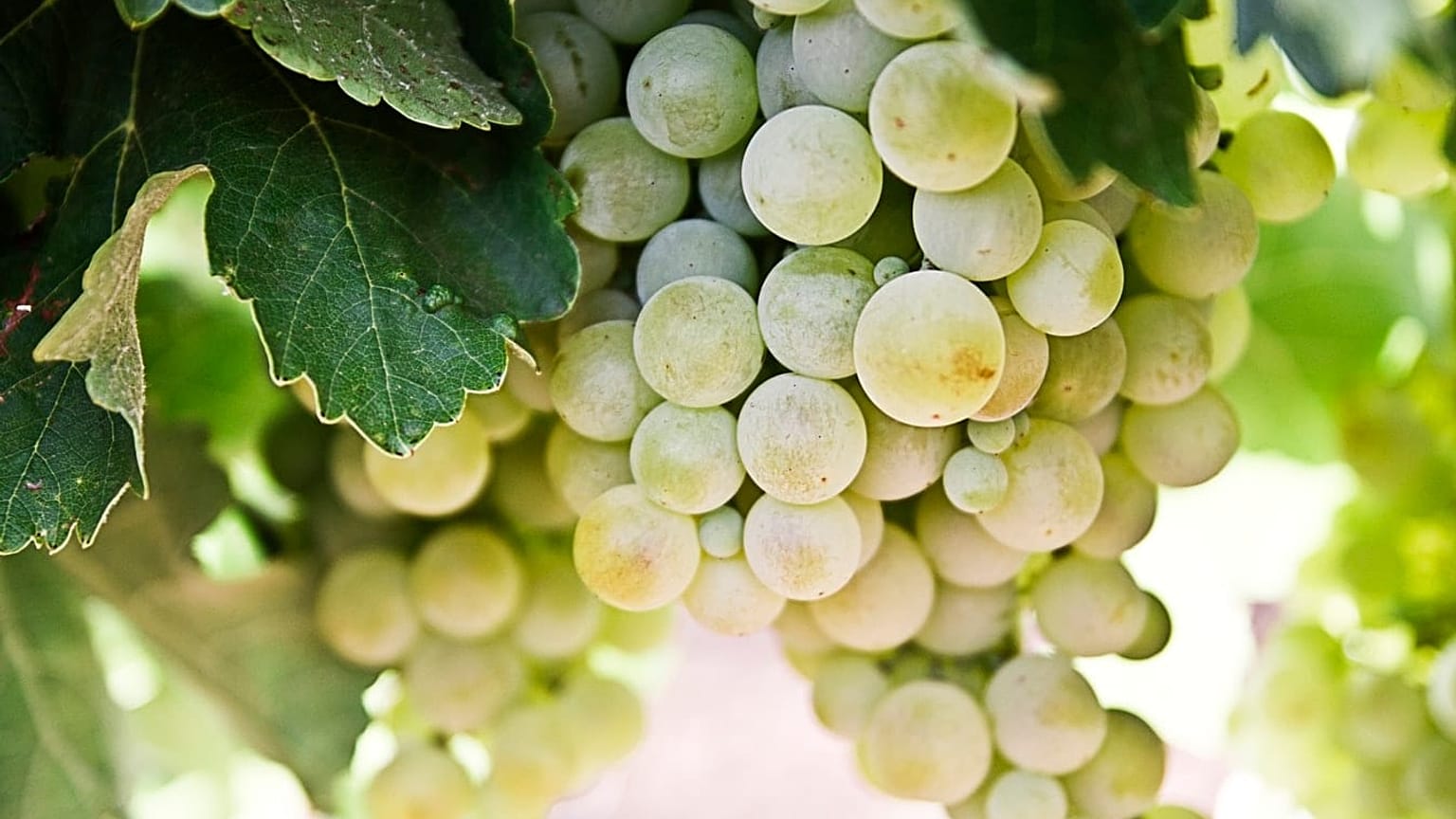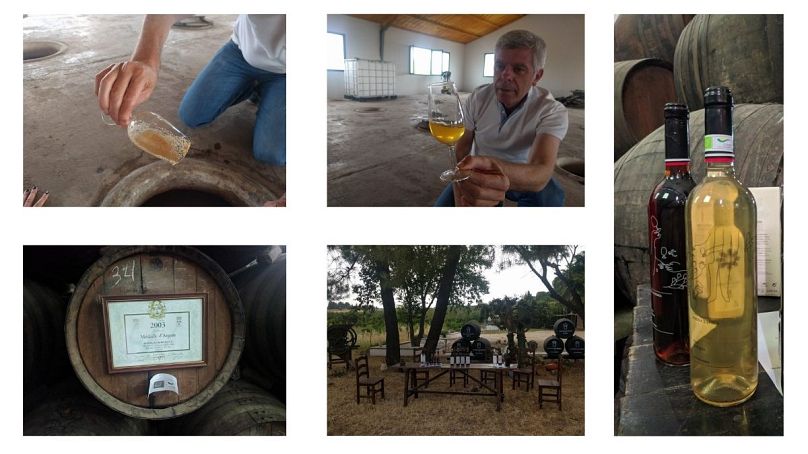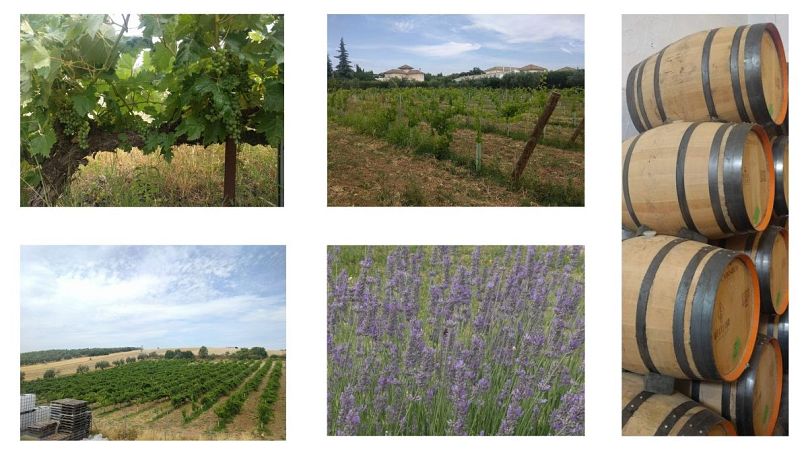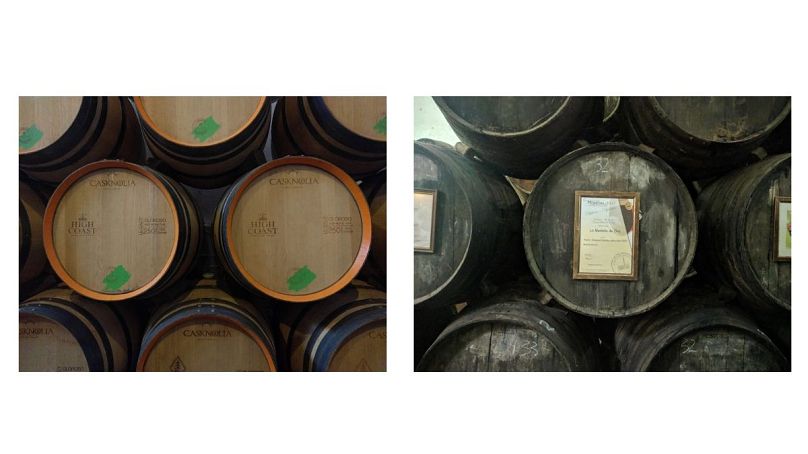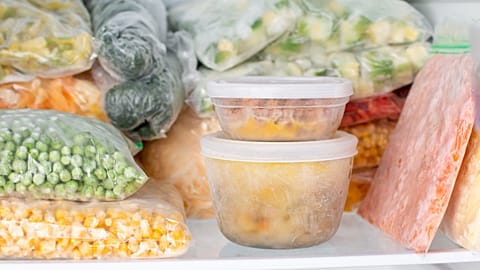I explored a vineyard in Córdoba to learn about Spanish organic wine and why its popularity is increasing.
In the green and lush Andalusian countryside, vineyards stretch for miles on end. Together with France and Italy, Spain is one of Europe’s biggest wine producers. The country even surpasses its neighbours when it comes to producing organic wine.
For many family vineyards and larger companies, switching to organic wine is a strategic decision as international demand for this type of drink is increasing.
I took a short car journey to the magical city of Córdoba in southern Spain to pay a visit to the Robles family who, since 1927, has cultivated vines for three generations. The family's star product is the sweet, intensely flavoured white wine made from the Pedro Ximenez grapes, a variety of the fruit that is mostly found around Córdoba.
At the end of the 1990s, Francisco José Robles Rubio, who had taken over the managing of the vineyards, after his father and grand-father before him, made a decision that would change the history of the family business for good: he decided to start producing organic wine.
At the time, this was a bold move, as the organic agricultural sector was not yet developed, nor receiving as much support. There were no European organic wine production rules. “Moving to the organic sector was a strategic decision to provide consumers with something new, to distinguish ourselves, but it was challenging. It wasn’t very well accepted by the people around us and by other wine producers in the market, and we were criticised. But we went along, and I decided to get proper training into what organic agriculture entails”, Francisco Robles explains.
Related | The purple village dedicated to organic wine and slow food
A symbiotic relationship with nature
Organic wines are also referred to as ecological wines. Simply put, the concept means that they are made from grapes cultivated without synthetic fertilizers, pesticides or weed killers. In Europe, the production of such wines is now regulated by the EU Commission Regulation 203/2012 that establishes the oenological processes and the practices allowed in organic winemaking.
These wines are not to be confused with “natural wines”, which are obtained with the minimum possible intervention in the cultivation, the harvesting of grapes and the process of elaboration in the cellar. Yet, the grapes don’t have to be cultivated ecologically.
At bodegas Robles, not using any chemical products means relying on the natural environment to help the grapes to grow in a healthy manner, and to protect them from external threats. On the Robles land, a small vineyard is used as an experimentation ground to find out how to best grow the grapes naturally, without any additional substances, and which varieties of grapes fare better. Working closely with local universities, the family has developed a method based on observation, analysis and experimentation with the entire ecosystem in which the grapes grow.
“The first step was analysing the composition of the ground, looking at what potassium, nitrogen and phosphorus compounds it contains. Then we’ve studied what type of vegetation can capture those nutrients, putting those plants close to the vines, bringing them what they need to grow,” Francisco Robles explains.
The idea behind this strategy is therefore to create an optimal vegetal cover that includes autochthonous wild species. They release the necessary nutrients to guarantee a healthy growth of the vine, to attract the beneficial insects that control the pests and to improve soil fertility.
Instead of using insecticides, a lot of work is done to set up an ecosystem with a robust food chain. By planting trees and other vegetation all around the vineyard to attract insects that would otherwise cause problems, they are diverted away from the vines.
“To create the right ecosystem, with the right trophic interactions, that allow our vines to grow without chemical intervention, we have to spend a lot of time observing nature, looking at the interactions between fauna and flora. It’s about rediscovering the symbiotic relationship we have with nature, the natural methods we have to grow the grapes that make our wine. Sometimes, progress is about regressing,” Francisco Robles says.
"Following the cultivation process, the main priority is producing wine using autochtone yeasts. The fermentation of our wines is done with native yeasts that are present in the vineyard land."
Related | A wine renaissance is happening in the Balkans
Diverse projects
In parallel, many other projects have been launched, to make production at the vineyard more sustainable, and to decrease its ecological footprint. Precise analysis of the carbon footprint has carried out to get a diagnosis of the problem. Solar panels have recently been installed on the buildings to allow Bodegas Robles to become self-sufficient in regards to energy production. Since 2012, a project known as “labotelladelvino” has been launched : people who want to buy the Robles wine can get a reusable glass bottle that they can refill with their favourite wine.
If one thing stands out from visiting the Robles' grounds, it’s that organic winemaking is about much more than using specific methods of production. Rather, it’s a comprehensive way of cultivating grapes and making wine, it’s a philosophy which respects the land, is dedicated to its products and has sustainability at its core.
As more and more vineyards follow in these footsteps, the organic wine sector in Spain is likely to continue growing. “Our big advantage is the climate. It has played a huge role in explaining why the country is doing so well when it comes to organic wine. There is little rain compared to other regions of the world, so there is less of a need to use substances like copper as a fungicide to treat the vines,” explains Francesc Suriol, who owns bodegas CAN SURIOL, near Barcelona.
One issue remains: consumption of wine is still quite low in Spain compared to neighbouring countries. This means that most of the organic wine produced in the country is destined for other markets and exported. Thinking about solutions to attract Spanish consumers to this incredible variety of wine will be the main challenge in coming years, if producers want these organic beverages to be consumed more locally and sustainably.
Francisco Robles is optimistic however. “As people realise the quality of organic wine and its value for our environment, these wines become the norm”, he says.
Related | **Can't decide between white, red or rosé? Why not try orange wine **
Words: Léa Surugue















